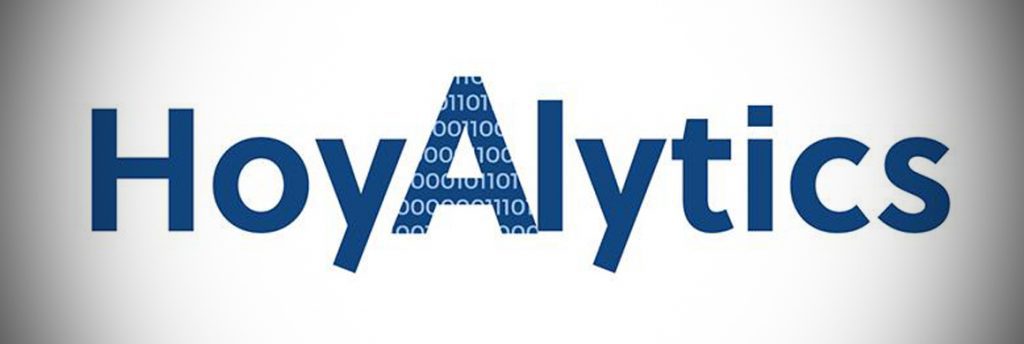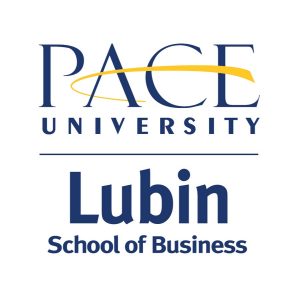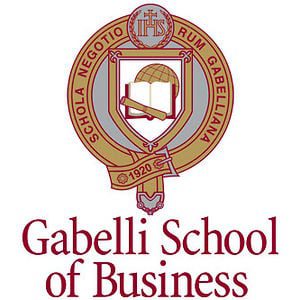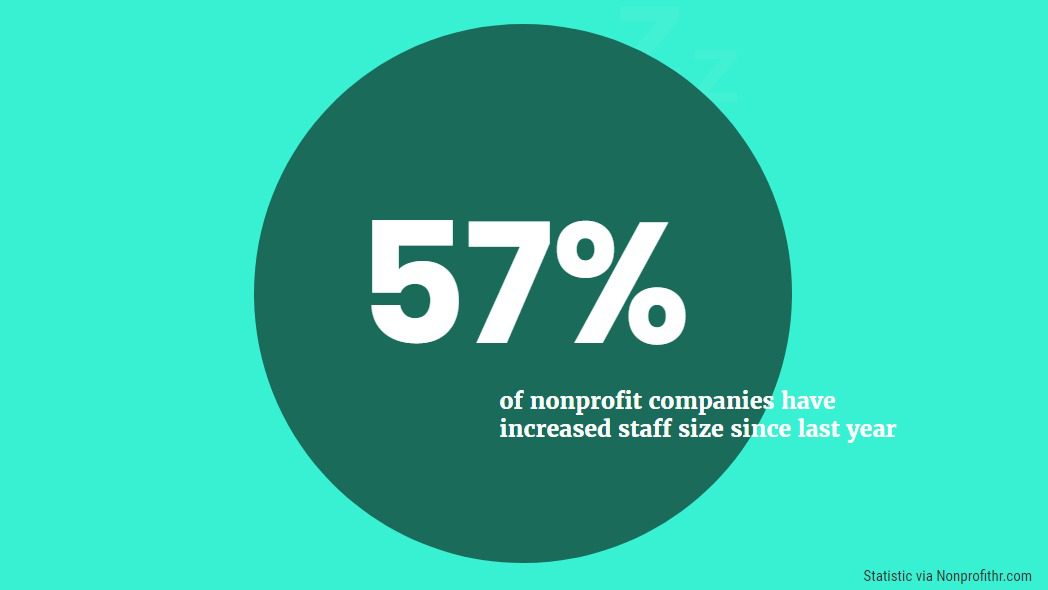Georgetown McDonough MBAs Launch HoyAnalytics Club

A group of Evening MBA students at the Georgetown University McDonough School of Business recently launched HoyAnalytics—a student organization focusing on statistics and data analytics. Though the club is is pending official sponsorship by the MBA Program Office, it has drawn a lot of interest in the McDonough School of Business.
According to the McDonough School, HoyAlytics is the first club organized by Evening MBA students. The organization’s board is made up of both full-time and Evening program students, and was created with unifying the two MBA programs in mind.
But the organization’s two main objectives are to create a community for those interested in statistics and analytics, as well as help those who are not already data-savvy gain quantitative skills. As statistics and analytics have become prevalent in more and more industries, HoyAlytics hopes to prepare MBAs for their careers.
“The club is on the cutting edge,” said Kenny Tan (MBA’19), one of the HoyAlytics founders. “Students are taking it in their own hands to make things happen.”

According to McDonough, the club recently held a free Excel workshop with nearly 40 full-time and Evening MBA students in attendance, and plans to continue holding workshops to teach different skills and software, such as Tableau, SAS, R, and SQL, as well as inviting guest speakers.
Student organizations and clubs generally provide great networking and professional benefits, such as access to industry leaders, professional development opportunities and the ability to make a real impact. A U.S. News & World Report list describes the following as reasons why it’s a good decision to get involved in a club in college:
- It allows students to become connected to their school
- It helps them build community
- It allows them to discover their passions and strengths
- It’s a résumé builder
- Sometimes, busier people do better
- Utilize your school’s resources
Check out some of the coolest MBA clubs and student organization’s in the Washington DC Metro here.
Looking At New York City’s Best MBA Return on Investment, Pt. II

New York City is an obvious choice for budding entrepreneurs, consultants, and financiers to find their footing.
Manhattan is regularly called a playground for the wealthy, with a 2016 Newsweek article playfully and indiscriminately dubbing rich people New York’s new urban blight. So, if you’re one of the millions of people hopping into New York to extract its cultural and financial resources for personal gain before migrating to some more humane province, why not do an MBA there while you’re at it?
The proximity of New York business schools to the city’s wealth of opportunities means that MBAs have a kind of access that make b-schoolers elsewhere in the country—and the world—salivate. New York’s matchless combination of industry, culture, and strategic location means that any one of the numerous business schools that populate the region will give MBAs a veritable nitrous boost when it comes to post-graduation job placement. In fact, earlier this month we covered five other NYC MBA programs that give graduates the best return-on-investment.
You’ve surveyed the best so let’s try the rest! While Part 1 was populated by the most elite and therefore more expensive MBA options in the region, Part 2 focuses on New York programs that are more practical choices if you’re doing business school on a budget. These programs tend to offer comparatively smaller returns-on-investment but the advantage is their affordability.
So, let’s take a deeper dive into four more New York-area MBA programs that offer the best returns-on-investment for graduates.

Lubin School of Business — Pace University
The Lubin School of Business counts Hearst Magazines president Michael Clinton ’83, HBO Chairman and CEO William C. Nelson ’75, and former Chairman and CEO Ivan G. Seidenberg ’81 among its notable alumni. With tuition for Lubin’s two-year full-time MBA priced at $71,340, the program qualifies one of the mid-range options on our list. MBAs graduate with an average salary-to-debt ratio of 68 percent culled from average debt of $44,076, according to U.S. News & World Report, and an average base salary of $64,425.

Gabelli School of Business — Fordham University
Notable Gabelli School of Business notable alumni include UnitedHealth Group CEO Stephen J. Hemsley, ’74; former JP Morgan CEO Maria Elena Lagomasino ’77; Countrywide Financial Corp Co-Funder, Chairman, and CEO Angelo R. Mozilo ’60; and Empresas Polar CEO Lorenzo Mendoza. At $87,807 for its two-year full-time MBA, Gabelli’s tuition is among the priciest on our list but the handsome 53 percent salary-to-debt ratio makes up for it. MBAs graduate with an average debt of $51,870 and go on to earn an average base salary of $97,404.

Tobin School of Business — St. John’s University
The Tobin School of Business at St. John’s University is one of the most affordable MBA programs on our list, with tuition priced at $43,740 for its two-year full-time MBA. Tobin MBAs graduate with an average debt of $28,291, which when set against their $59,276 average base salary, yielding a 48 percent salary-to-debt ratio.

Stevens Institute of Technology School of Business
Recent noteworthy employers of the Stevens Institute of Technology School of Business MBAs include ExxonMobil, Goldman Sachs, Johnson & Johnson, JPMorgan Chase, L’Oreal, Lockheed Martin, Microsoft, Tishman Realty & Construction Co., Turner Construction, UBS Financial, and Verizon. Although tuition is priced at a competitive $68,988 for its two-year full-time MBA, Stevens actually has the highest salary-to-debt ratio of any school on our list, at 72%. Stevens MBAs graduate with an average debt of $48,244, according to CNN Money, and go on to earn an average base salary of $67,100.
In Search of San Francisco’s Best Nonprofit MBA Programs

Even though San Francisco may be thought of as the place to be for entrepreneurship and technology, the city is home to a diverse community of organizations both private and public, both for and not-for-profit.
Business professionals in the city can apply their business acumen and education in a number of ways, whether helping a new venture get on its feet, contributing to some of the largest tech firms in the world, or supporting a mission they’re passionate about. And though such mission-driven organizations center around the cause and not of profit-making, having a strong business leader at the helm is crucial in helping these organizations to achieve their mission.
Students interested in gaining critical operations and management skills to apply in the nonprofit sector may be interested in pursuing an MBA in Nonprofit Management. Professionals with this degree have moved on into major leadership roles in the nonprofit field, whether working as a Nonprofit Program Director, Development Director, or Community Outreach Coordinator. Nonprofit managers are able to flex their muscles in finance, marketing and a number of other areas of business while still focusing their passion on a broader mission of change or aide.
A few business schools in the San Francisco metro area offer the chance for students to focus their MBA in the field of Nonprofit Management, offering a diverse skill set of nonprofit experience combined with a strong business foundation. Below, you can explore the San Francisco MBAs in Nonprofit Management.
San Francisco Nonprofit MBA Programs You Need To Know
Haas School of Business – UC Berkeley
The Haas School of Business at UC Berkeley offers an MBA concentration in Social Sector Leadership through the university’s Center for Social Sector Leadership. Ranked second overall among business schools with a nonprofit focus by U.S. News & World Report, the Haas program trains up-and-coming business leaders to make a social impact and inspire collaboration between sectors.
The Center for Social Sector Leadership offers students a wide variety of courses to take that can help shape various careers in the social sector, such as nonprofit consulting, board leadership, and strategic or financial nonprofit management. In addition to learning inside the classroom, the center also provides a number of opportunities for experiential learning, such as the Berkeley Board Fellows, which places graduate students on nonprofit boards of directors, or the Haas Impact Investing Network, which offers first-hand experience in impact investing for socially-minded MBAs around the country.

San Francisco State University College of Business
The College of Business at San Francisco State University offers at MBA Emphasis on Nonprofit and Social Enterprise Leadership. With the goal of preparing students to take their business skills to mission-driven organizations, the program will teach students to create a coherent organizational vision, apply innovative solutions to address needs, and evaluate the effectiveness of an organization’s programs in meeting goals.
Students in the Nonprofit and Social Enterprise Leadership emphasis will take the core MBA course requirements as well as three courses for their major: Nonprofits, Policy and Society; Innovation for Sustainability; and Seminar in Social Entrepreneurship, or Strategies in Emerging and Developing Economies. Students will also select two electives that can help further shape their education in leadership and creativity.
Stanford University Graduate School of Business
The Stanford Graduate School of Business offers MBA students the opportunity to pursue a Certificate in Public Management and Social Innovation as part of their degree. Through the university’s Center for Social Innovation, MBA students can explore the social sector and prepare for roles as forces for social change throughout the nonprofit, philanthropic, government, or corporate spheres.
To pursue the certificate, MBA students must complete a social innovation experience that allows them exposure to populations affected by a particular social or environmental issue. Students may also work alongside leaders making contributions in the field to fulfill the requirement.
For more on how MBAs are making a greater social impact, check out how these students are making a difference in their own unique way.
Your Search for Atlanta’s Best Accelerated MBA Programs

Most folks pursuing an accelerated MBA know which industry or area of concentration they want to pursue. They are MBA candidates who want to advance their current careers, not switch them. Others choose the accelerated route because it can be difficult to leave two years of work and salary. Continue reading…
The Best Executive MBAs in Atlanta

The city of Atlanta might just become the next hot spot for business. The southern city’s population increased by more than 90,000 last year, and it’s likely to grow even more. Right now, it’s the ninth-largest metro statistical area in the country—clinging to the top 10 in the U.S.
This influx of people has followed the city’s booming job market. That and the warmth that comes with living in the great state of Georgia. The cost of living in Atlanta is also affordable, especially when looking at other major metros along the East Coast. The city was ranked among the 12 “best big cities” to live and the median annual salary is $48,750.
This might just make Atlanta the next best place to build on already-established experience to pursue an executive MBA. Here are five of the best programs in the city.
The Best Atlanta Executive MBA Program Options
Goizueta Business School – Emory University
Emory University’s Goizueta Business School has been around for a while, since 1919. That’s nearly 100 years. It’s no wonder that its executive MBA program offers all the perks it does. The school’s had time to finesse its programs. The school sits on Emory University’s campus within driving distance from downtown.
The Executive MBA program at Goizueta caters to the older professional who needs flexibility. That’s why the program has two tracks: one on the weekend and a modular EMBA. The modular EMBA allows students to finish the program in 20 months. That’s not even two years. Either way, students begin the program in September. The weekend MBA offers five areas of focus: finance, healthcare, leadership, strategy, and general management.
J. Mack Robinson College of Business – Georgia State University
If you’re looking for hustle and bustle, the J. Mack Robinson College of Business at Georgia State University might be it. Located downtown, the school’s been around six years longer than Goizueta. So it’s way past the century mark.
The Executive MBA program is short, too. It takes just 17 months to complete. Classes take place every other weekend. Most students are around 40-years old. This Atlanta EMBA program has received rank after rank from publications like U.S. News World & Report, CEO Magazine, and Ivey Exec.
Scheller College of Business – Georgia Institute of Technology
At the Scheller College of Business at the Georgia Institute of Technology, MBA candidates can expect a lot of immersion into the world of business. The school sits smack dab in Midtown Atlanta, the city’s second largest business district.
MBA students can decide to focus on one of two options: global business or management of technology. The Executive MBA program has a heavy foundation focused on the basics of business, but it also compounds that with a required international residency.
Terry College of Business – University of Georgia
Sitting on the University of Georgia’s Atlanta campus, the Terry College of Business‘ Executive MBA program is worth keeping your eyes on. Students do have to complete two week-long residencies at the school’s Athens campus, but it’ll be worth it.
With a professional executive mentor, students get direct access to the business world from someone who knows how to navigate it. The Executive MBA program has been ranked 14th in the world by The Economist. It combines classroom education with field experience—all in 18 months.
Michael J. Coles College of Business – Kennesaw State University
The Michael J. Coles College of Business at Kennesaw State University sits outside the city of Atlanta, but it’s still very close. Located in Kennesaw, Georgia, the school hasn’t been around as long as others on this list. But that doesn’t make it any less competitive.
For one weekend a month over 17 months, students learn real-world experience to give their years of experience even more edge. The program is proud of what it can offer students interested in expanding more globally. The eight month-long additional global program provides students a 10-day international residency, as well as working with another MBA program in Europe.
Your Guide to the Most Affordable MBA Programs in Dallas

An MBA provides professionals with increased career flexibility and greater earning potential. Unfortunately, the sizable cost of graduate school can be a hindrance to students motivated to earn an MBA. The shackles of student loan debt can haunt former students well into their professional lives.
Luckily, many schools appreciate the toll a high price tag can take on students, and offer more realistic fees and resources. With this in mind, we’ve laid out three of the most affordable Dallas MBA programs.
Commerce College of Business — Texas A&M University
The Texas A&M Commerce College of Business offers a relatively affordable experience for aspiring MBAs. The school is particularly sensitive to the financial stress pursuing MBA can cause. This is why the school follows the [In]tuition plan. Commerce’s [In]tuition guarantees the cost of commerce students’ educations will not will remain the same from registration until graduation, so that students do not have to worry about rising costs and fees from year to year. According to their tuition calculator, a graduate student who lives off campus and is a Texas resident could pay a tuition as low as $5,775.06 per year. The program averages about two years. Commerce accepts a long list of outside scholarships, and they offer institutional scholarships based on academic achievement.
The cost may also be reduced for students who completed the appropriate undergraduate courses, which could waive six pre-requisite courses. Commerce offers 13 minor options, such as Accounting, Business Analytics, Corporate Management, and Cyber Security. Commerce students benefit from the flexibility of the plethora of online courses offered by the school.
Naveen Jindal School of Management — University of Texas at Dallas
At the Naveen Jindal School of Management, residents pay around $32,998, factoring in tuition and fees, and nonresidents pay about $64,332 for the full-time MBA. In the past few years, the university offered scholarships to 75 percent of their incoming full-time MBA students. There are two types of merit-based scholarships for full-time MBAs in this program: Cohort and Corporate. These are both merit-based and students must apply to be considered.
U.S. News & World Report ranked Naveen Jindal as the 38th best business school in the country, which boasts an impressive 90 percent employment rate for full-time MBA grads. Students have recently gone on to earn high ranking positions at companies like Amazon and Toyota.
University of North Texas College of Business
As of the 2016-17 school year, the total cost of an MBA at University of North Texas College of Business was about $41,780 for residents and $56,468 for non-residents. At UNT, students can apply for a variety scholarships to cut tuition costs for many different types of students. For example, the Lupe Murchison Foundation Graduate Fellowship is a scholarship awarded to students, not based purely on need or academic achievement, but also on the student’s effort and promise.
UNT also offers a prestigious Online MBA for students looks for a more accommodating schedule. The school also offers afternoon, evening, and weekend classes for students looking for schedule flexibility, and who also wish to experience the on-campus community.
For more valuable information about the best MBA programs Dallas has to offer, check out our guide to the metro and which schools don’t require GMAT/GRE scores for admission.
